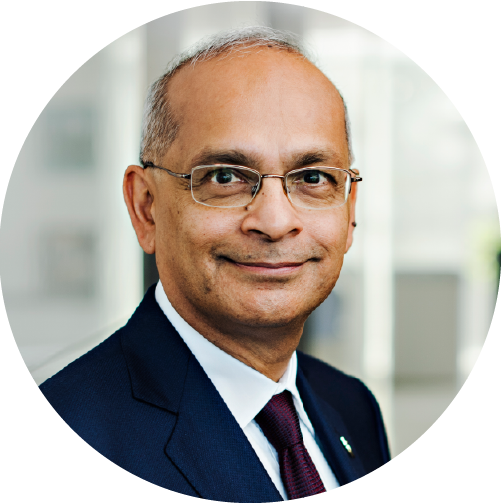
Indigenous Strategic Plan 2023-2028
Jean Becker, Associate Vice-President, Indigenous Relations

I am delighted to share the University of Waterloo Indigenous Strategic Plan 2023-2028. The purpose of this document is to assist in guiding the University towards its goal of indigenizing and decolonizing the institution.
The University has publicly acknowledged the harm that colonization has caused to Indigenous peoples and committed to meaningful and respectful work towards being an ally to the process of reconciliation, which involves reclaiming Indigenous identity and culture, and decolonization.
I’m pleased that the University of Waterloo is committed to building long-term relationships with Indigenous Peoples and communities based in respect and reciprocity.
Vivek Goel, President and Vice-Chancellor

In September 2022, the University of Waterloo proudly committed to reconciliation, indigenization and decolonization across the entirety of our institution.
We committed to building long-term relationships with Indigenous Peoples and communities based on respect and reciprocity. As an institution of higher learning, the University of Waterloo has a unique and important role to play in working toward Truth and Reconciliation.
As educators, we have an obligation to teach all of our students and the public the hard truths about our country’s colonial history, and the extensive damage done to the lives, histories, and spirits of Indigenous peoples.
Acknowledgements
We recognize and acknowledge the University of Waterloo is situated on the Haldimand Tract, land six miles on each side of the Grand River, granted to the Haudenosaunee by the Haldimand Treaty of 1784. The land inside and surrounding the Haldimand Tract, including the Stratford campus, is the traditional territory of the Attawandaron (Neutral), Anishinaabeg, and Haudenosaunee. We also acknowledge and recognize this area is now home to diverse First Nations, Inuit and Métis groups.
We acknowledge and appreciate the work and commitment of the University of Waterloo, the Indigenous Advisory Circle, the 2018 Indigenization Strategy working groups, the President and Provost, Shatitsirótha Waterloo Indigenous Student Centre (WISC), in addition to campus partners and the campus community, who committed their time, shared their wisdom, and remained steadfast in their commitment to decolonizing and indigenizing the University of Waterloo.
This strategic plan was written by the Indigenous Advisory Council, a body comprised of Indigenous students, staff, faculty and community members and facilitated by Anishnaabe consultant Andrea Johnston of Johnston Research and informed by the work of many Waterloo employees.
Contributors
Indigenous Advisory Circle
Elaine Garner, Retiree (Anishinaabe)
Candace Harrington, Director of Advancement, Faculty of Mathematics (Algonquin)
Myeengun Henry, Knowledge Keeper, Faculty of Health (Anishinaabe)
John Lewis, Professor, School of Planning (Métis)
Logan MacDonald, Professor of Fine Arts, CRC (European and Mi’kmaq)
Jennifer Parkinson, Community representative (Métis)
Luane Roberts, Indigenous Justice Coordinator, Legal Services (Cree)
Efrem Sandy, Staff representative (Anishinaabe)
Savanah Seaton, Director of WISC (Anishinaabe)
Clara Sockabasin, Student (Mi’kmaq)
University senior administration
Vivek Goel, President and Vice-Chancellor
Feridun Hamdullahpur, former President and Vice-Chancellor
James W.E. Rush, Vice-President Academic & Provost
Facilitator
Andrea L.K. Johnston, Johnston Research Inc. (Anishinaabe)
Office of Indigenous Relations
Jean Becker, AVP, Indigenous Relations (Inuk)
Robin Stadelbauer, associate director, Indigenous Relations (Anishinaabe)
University Relations
Tracelyn Cornelius, Director, Inclusive Communications